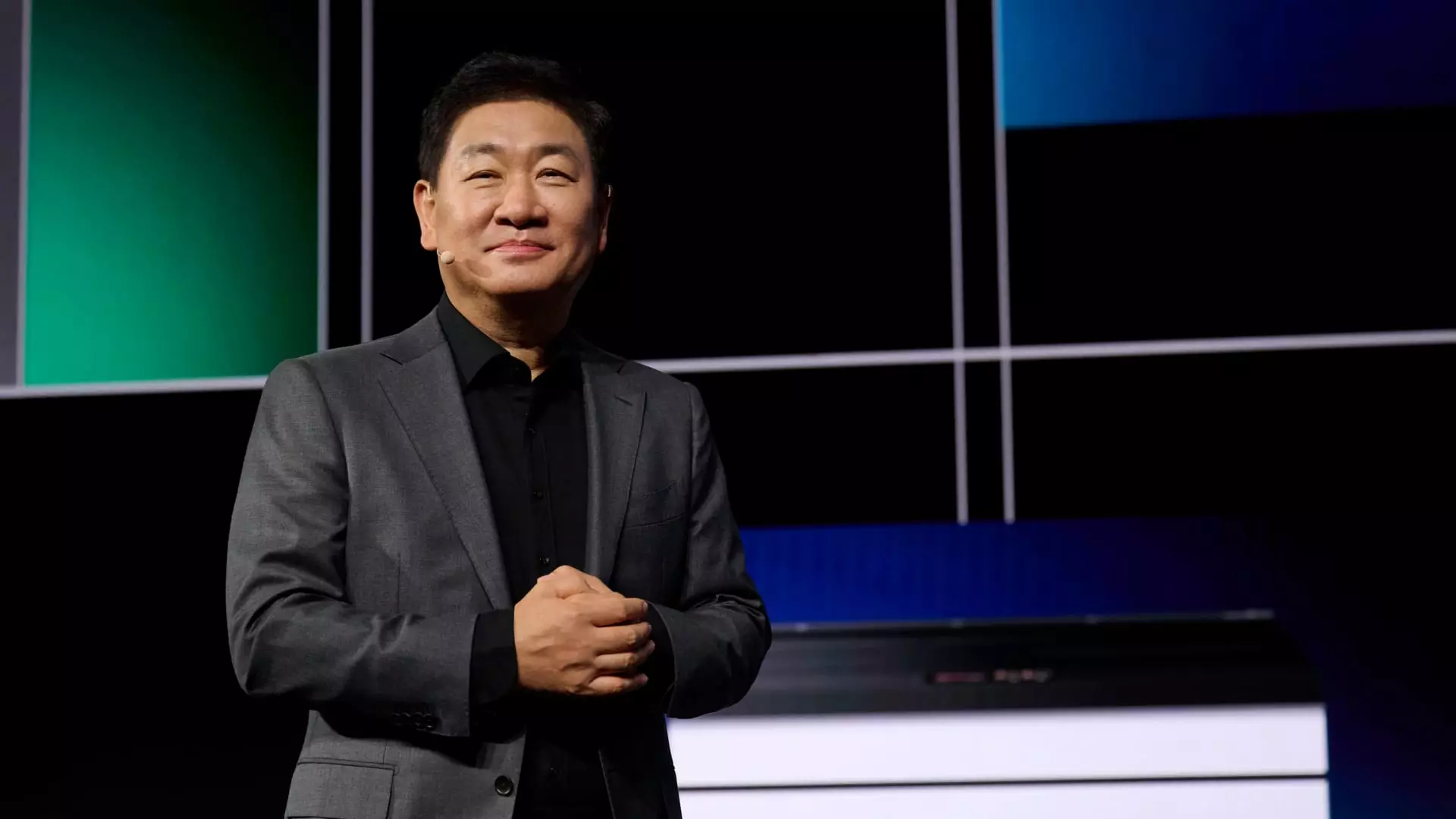Samsung Electronics is embarking on an ambitious journey to invigorate its on-device artificial intelligence (AI) capabilities. As the tech giant aims to outpace global market growth in the consumer electronics sector this year, it faces significant challenges, particularly from rising Chinese competitors such as Huawei and Xiaomi. The landscape of technology is rapidly evolving, and Samsung’s response will be crucial in maintaining its leadership position in the global market for smartphones, TVs, and home appliances.
While the global consumer electronics market is projected to experience a growth rate of approximately 3% by 2025, Samsung anticipates a more robust growth trajectory for its mobile devices division, projecting an increase of 4% to 5% this year. According to Jong-Hee Han, Samsung’s CEO, this growth ambition is rooted in enhancing product connectivity through AI innovations, allowing for smarter interactions between devices and their users. As the company’s historical dominance in the tech industry comes under pressure from aggressive pricing strategies of Chinese manufacturers, Samsung must not only innovate but also strategically position its products through improved security and convenience rather than reduced prices.
The growing competition serves a dual purpose: it spurs innovation within Samsung and ultimately benefits consumers who enjoy a wider array of choices. However, the rise of these competitors intensifies the urgency for Samsung to establish clear differentiators in a crowded and price-sensitive market.
Samsung’s commitment to integrating AI into its devices is evidenced by its installation of advanced AI chips in various home appliances such as refrigerators, washing machines, and robotic vacuum cleaners. The integration of AI functions extends to its flagship smartphones, particularly the Galaxy S24 series, which boasts features that include real-time translation of incoming foreign language calls. This strategic focus on leveraging AI is an effort to enhance both the utility and user experience of Samsung products, potentially making them more appealing to consumers who seek innovation and convenience.
However, the question arises: Will these enhancements be enough to combat the pricing strategies of competitors? Samsung must not only promote its AI-driven features but also justify potentially higher price points, encouraging consumers to see the value in choosing Samsung over cheaper alternatives.
In November 2023, Samsung announced a significant leadership reshuffle, appointing Jun Young-hyun as co-CEO, alongside Han. This strategic change indicates a proactive approach to addressing challenges, particularly in the memory chip sector, where Samsung has experienced a decline in its competitive edge against SK Hynix. As the demand for high-bandwidth memory chips, crucial for AI workloads and gaming applications, rises, the pressure is on Samsung to regain its footing.
Recent performance in the semiconductor division has drawn scrutiny, compounded by a notable apology from Jun regarding disappointing earnings. Usage trends exhibited by Nvidia highlight an industry pivot towards AI that ideally would benefit memory chip manufacturers. However, delays in delivering crucial products to major clients could hinder Samsung’s recovery.
Samsung’s share price struggles have been particularly pronounced, with a 32% drop over the past year, eclipsing the broader market trends. The company has announced plans to initiate a substantial 10 trillion won stock buyback as part of its “value-up” campaign, aimed at shoring up investor confidence and stabilizing its declining stock price. While analysts express cautious optimism regarding this initiative, concerns linger about the time it may take to close the gap in the high-bandwidth memory market and the overall health of PC sales impacting demand.
The road ahead for Samsung will have its share of obstacles, but with a focused strategy on AI integration, refined product offerings, and a responsive leadership team, the company could navigate these turbulent waters. How effectively Samsung can leverage its innovations and address the competitive realities posed by rivals will determine not only their market position, but also their legacy in the ever-evolving landscape of consumer electronics.

